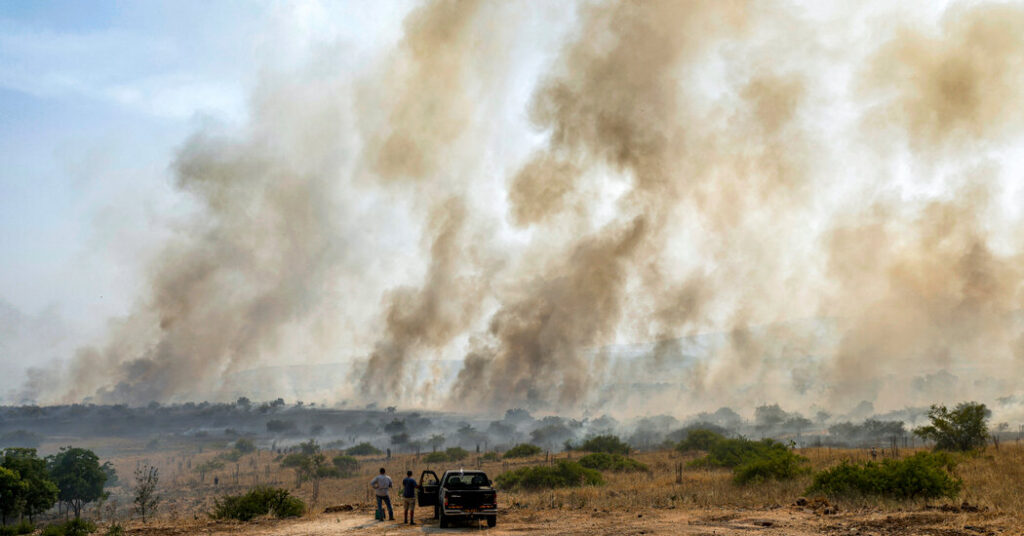Hezbollah responded to Israeli airstrikes in Lebanon on Thursday with a sharp increase in rocket and drone attacks on Israel for a second day in a row, intensifying the conflict and raising fears of an all-out war.
It was unclear how many weapons Hezbollah fired on Thursday, but the group’s Al-Manar broadcaster reported that more than 100 weapons were fired at one point in a simultaneous, coordinated attack on multiple Israeli military installations. Hezbollah said that included some drones targeting Israel’s northern military headquarters.
The Israeli military said in the afternoon that Hezbollah fired more than 40 rockets at the border, but the artillery fire continued into the evening. The military had not updated the figure hours later, but a military spokesman said it was the worst attack since war broke out between Israel and Hamas in October. He did not immediately elaborate.
At least four people were injured in Thursday’s attack, according to the Israeli military and its emergency service Magen David Adom. The military said in the afternoon that its air defense systems had shot down many of the weapons fired so far, but some had penetrated. The attacks and counterattacks fanned wildfires on both sides of the border.
On Thursday night, Lebanon’s state-run news agency reported that an Israeli attack destroyed a house in the town of Janata, a few miles from the Lebanese coastal city of Tyre, causing multiple casualties and sparking a fire.
Taleb Abdullah, one of Hezbollah’s top commanders, was killed in an Israeli attack on Tuesday. The group promised to step up attacks on Israel in retaliation.
On Wednesday, Hezbollah fired more than 200 rockets into Israel but caused little damage, according to the Israeli military.
The Israeli military said on Thursday that its fighter jets attacked “Hezbollah military buildings” in a Lebanese border village overnight.
Hezbollah has stepped up its attacks on Israel following the October 7 Hamas-led attack on Israel and Israeli retaliation in the Gaza Strip, with Israel retaliating with artillery and air strikes in Lebanon, bringing the long-simmering conflict closer White heat.
Attacks occur almost daily, forcing more than 150,000 Israelis and Lebanese living near the border to flee their homes.
Israeli officials have threatened stronger action against Hezbollah, while pressure from the political right and displaced civilians has been growing. But so far, the two sides are far from an all-out war.
Israel killed Abdullah in an attack in Jewaya, southern Lebanon, on Tuesday night, saying he “planned, promoted and carried out numerous terrorist attacks against Israeli civilians.”
The United States, France and other mediators have warned of the dangers of regional war and sought to push for a diplomatic solution between Israel and Hezbollah to restore calm on both sides of the border. But analysts say the likelihood of a deal is low as long as Israel’s operations in Gaza continue for eight months.
Israel invaded Lebanon in 1978, 1982 and 2006, each time to repel armed groups attacking Israel.
Jonathan Rice Contributed reporting.

